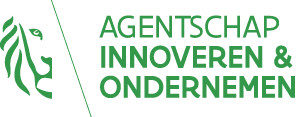
Business Design & Innovation
Intelligent mobiliteitsbudget
With the Smart Mobility budget, Smart Mobility researched how a mobility budget can lead to a more sustainable pattern of travel. The necessary changes in regulation were also analyzed.
Problem
While many companies have heard of the Smart Mobility budget, few actually apply it. One of the reasons is that employers and employees are confronted with lack of clarity, administrative red tape in the management and implementation of a multimodal mobility budget. However, applications have been and are still being developed to take away some of those stumbling blocks.
Solution
With this project we wanted to research, test and analyze all aspects around a total integration of the Smart Mobility budget in Flanders. Based on our findings, we were able to make correct recommendations to all actors involved.

Project Development
In a first phase over 50 companies showed a clear interest in participating in this project. With 30 of them extensive interviews were held, and 23 companies actually entered the project. 123 employees from 12 different companies spent 6 to 12 months using a theoretical mobility budget that they could spend on a range of transport options: (company) car, public transport, bicycle, shared bicycle, shared car, taxi, etc.
3 tools were given for internal follow-up of these budgets:
- Athlon Mobility Consultancy’s MOMAS, which is a software that offers a complete overview of the mobility cost per employee.
- XXimo, a prepaid VISA card that can be used to pay all types of mobility services and allows users to follow-up on their expenses.
- Mobility Concept, an online platform that gives employees insight into their mobility expenses, CO2 emission, fuel consumption, etc.
Advantages
The participants were surveyed before and after the trial period and the following advantages emerged:
- Participation in the project led 45% to change their means of transportation. The car remains the most important means of transportation, but alternatives are more frequently used.
- A mobility budget does not only have an influence on commuter traffic: journeys to shops or leisure activities are also more often done in a sustainable way.
- 2/3rd of the participants recommended the mobility budget to other employees.
- 39% of the people surveyed indicated that a pay out of the unused part of the mobility budget as gross salary would change their transportation habits. This rises to 56% if it is paid out as a net salary.
- The use of tools led to more sustainable behavior. This was the case for 36 to 50% of the users.
Result
Smart Mobility plays an important role in the promotion and implementation of the mobility budget in Flemish companies. The project showed that the market is ready for the implementation of a mobility budget if the necessary legal changes are made to keep the system user-friendly and administratively simple.
Based on this research, Smart Mobility and KPMG came up with the following recommendations:
- Open the mobility budget up to everyone, also employees without a company car.
- Allow the possibility to use other means of transportation by the other family members.
- Add the purely professional journeys to the budget (with the possibility to exclude them after justification).
- Limit the budget in a first instance to purely mobility-related services.
- Establish a global (para)fiscal regulation of the mobility budget.
This project had the financial support of the agency for innovation and entrepreneurship


